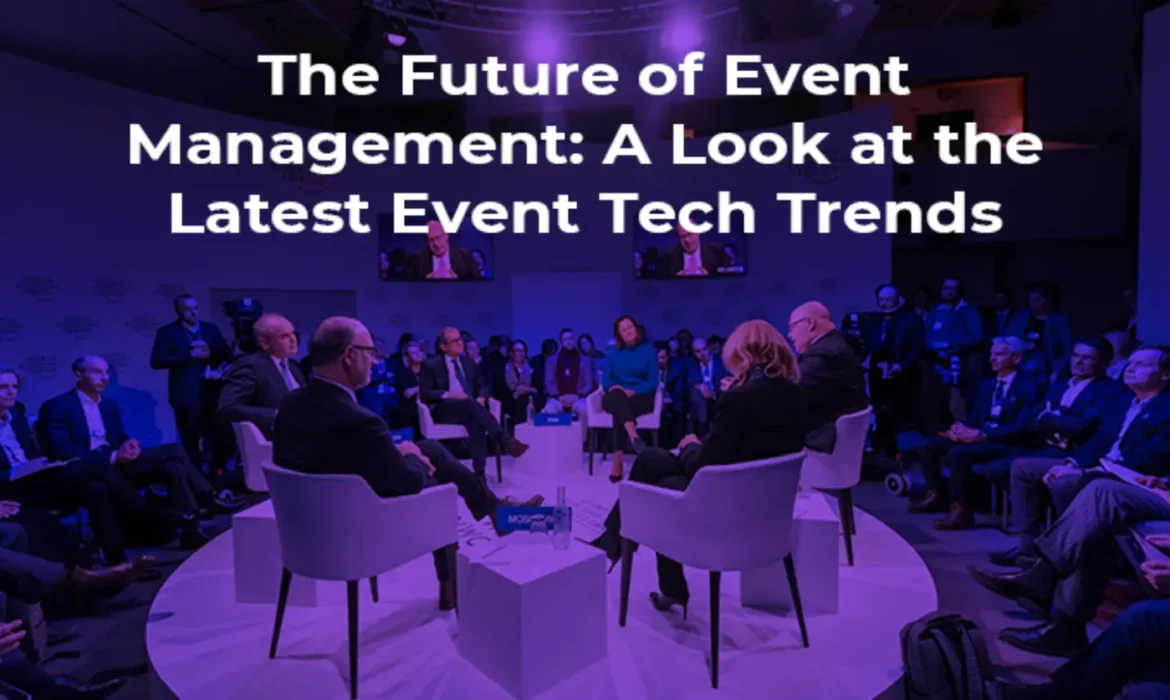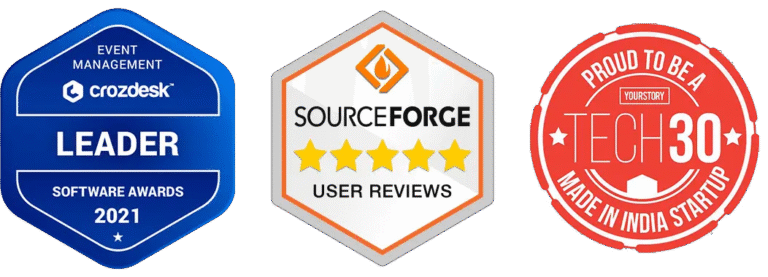Samaaro + Your CRM: Zero Integration Fee for Annual Sign-Ups Until 30 June, 2025
- 00Days
- 00Hrs
- 00Min

Events, whether they be business conferences, music festivals, weddings, or trade shows, serve as key for bringing people together and building a sense of community. Event management has changed drastically over time, evolving to keep up with cultural trends and technology innovations. It has never been harder to keep up with the most recent developments in the industry as we stand on the edge of a new era.
Professionals in the event management field may improve their offers, acquire a competitive edge, and assure long-term success in this fast-paced market by being aware of and adopting the most recent developments. It is imperative to investigate the most recent EMS developments that are reshaping the industry as technology continues to influence how events are organised, carried out, and experienced.
Event management software have developed into essential tools for event organisers looking to optimise operations and raise attendee happiness, from event registration and ticketing to on-site interaction and post-event analytics. In this blog, let’s explore some exceptional EMS trends that are going to be big in 2023!
Hybrid Events
Did you know that 73% of organisers believe that hybrid events will become more prevalent in the future? These gatherings mix the personal touch of physical gatherings with the benefits of virtual gatherings, such as flexibility and a wider audience. It is anticipated that the popularity of hybrid events will increase as more Middle Eastern nations adopt hybrid work and learning practices.
Event planners and businesses are aware of the value of conventional live events, but to close the gap between the real world and the virtual world, they are turning to virtual solutions. This enables businesses to unleash their creativity and create novel methods of information dissemination while also sustaining money and resources.

Facial Recognition and the Era of Contactless Convenience
The way events are organised and guarded has been revolutionised by facial recognition technology. The tradition of physical tickets or laborious registration procedures has been replaced by seamless check-in procedures made possible by face recognition devices.
The system quickly recognises and authenticates attendees as they approach specific entrance points, allowing admittance to the event. To improve the entire event experience, these technologies may also be utilised to recognise VIPs, personalise interactions, and offer specialised services. As a potent tool that is quickly gaining acceptance in a variety of sectors, facial recognition technology for event registration is growing. Facial recognition technology is a game-changer for the events sector thanks to its speedy attendance identification, elimination of human check-ins, and provision of personalised experiences.
AI – Artificial Intelligence
Come 2022 and AI is everywhere, and the event business is no different. Adapting attendee experiences to their unique preferences and interests can solve one of the most prevalent problems in this field. Event planners can use the study of attendees’ profiles and behaviour to recommend meaningful connections with appropriate exhibitors or like-minded peers by using AI-powered matching engines. Large-scale events and conferences, which can last for many days, include a variety of lectures, panels, and breakout sessions. AI can aid throughout the event lifecycle, including planning, ideation, and post-event tasks. To learn more about AI’s role in event ideation and how it enhances guest and organizer experiences, read our detailed blog on using AI for seamless events.
Attendees are still required to go through these choices to choose the ones that are most pertinent to their interests, this is where AI is so valuable. With attendees’ consent, AI can analyse various data points such as interests, geographical location, social media activities, and career experience. By doing so, AI eliminates the need for attendees to meet people randomly or endlessly browse through the attendees’ list. Instead, it enables them to establish higher-quality connections that align with their specific business needs and interests.

Wearable Tech
Wearables have become a great complement to events, combining amusement with insightful data. Wearable technology typically tracks numerous event parameters, in the form of “smart” badges and more. Wearable technology makes it easier to track event attendees more effectively. For instance, it enables planners to get detailed information on participants’ demographics, such as VPs, women between the ages of 18 and 35, or other information gathered during registration, in addition to information about the number of attendees at sessions and activities.
Wearable technology ushers in a new era of seamless event experiences and provides less disruptive options for attendees, despite its currently limited level of popularity. The incorporation of fun and functionality into wearable technology has the potential to revolutionise event management by improving guest tracking, data analysis, and ultimately, participant satisfaction.
Sustainability
A significant shift has occurred as people are now placing greater emphasis on the impact they have on the environment. As a result of this transformation, the concept of sustainability has arisen, particularly in the search for clean energy alternatives without eliminating current lifestyles. The concept of sustainability is being embraced by the events industry as well.
The development of technology and the acceptance of cleaner energy sources stand out. Event planners are implementing a variety of best practises to guarantee sustainability. They actively promote environmentally friendly travel and give local employment a priority while planning their events. In 2023, these behaviours will become more significant in determining people’s conduct and event choices.
To maintain their competitive edge and guarantee long-term success, professionals in this industry must remain watchful and adopt the most recent advancements. These trends are expected to dominate the market in 2023 and beyond, from hybrid events and AI-powered personalisation to wearable technology. Adopting sustainable practises will be essential as consumers prioritise the environmental effect of events more and more. Event planners can create remarkable experiences that encourage a feeling of community and participation among guests by incorporating these trends and keeping on at the forefront of innovation.

Built for modern marketing teams, Samaaro’s AI-powered event-tech platform helps you run events more efficiently, reduce manual work, engage attendees, capture qualified leads and gain real-time visibility into your events’ performance.
Location


© 2026 — Samaaro. All Rights Reserved.